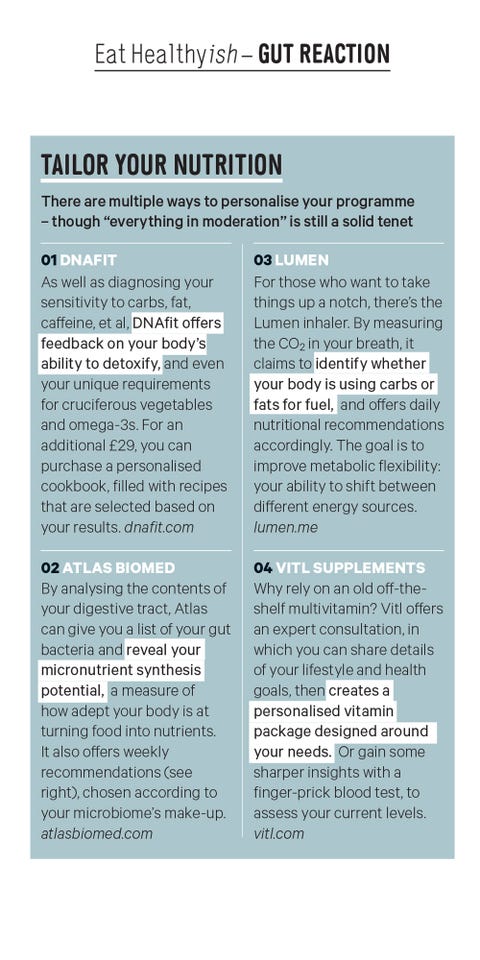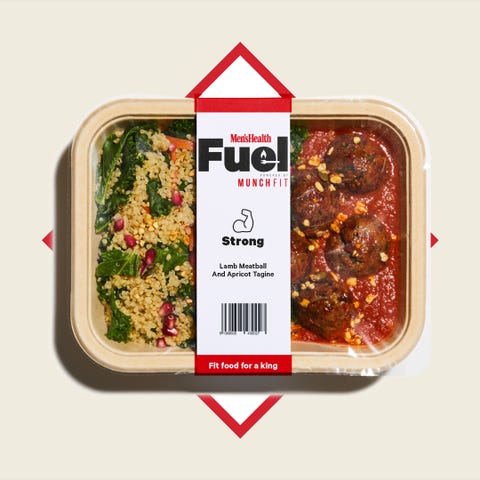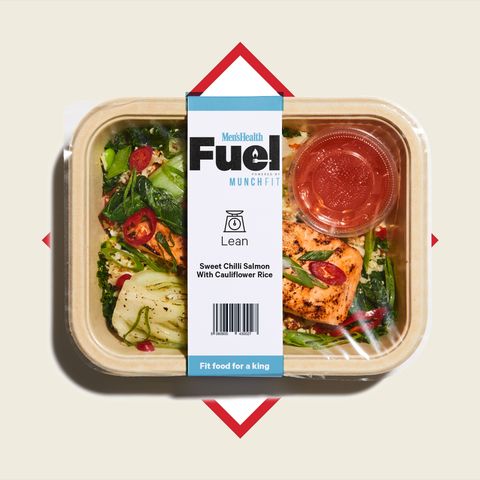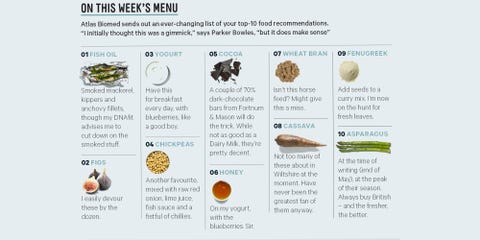Dash Diet Plan Menu Pdf
So, this is it then. The end. See ya, ta-ra and goodbye. Stop those clocks, go gentle into that good night and remember me when I've gone away. Because as a card-carrying, bona fide hypochondriac, all I need is the merest soupçon of an ailment and I'm convinced it's over. A farewell to all that. As the epitaph inscribed on Spike Milligan's gravestone said: "I told you I was ill."
Every itch is melanoma, every twitch typhoid, every cough a sign of lung cancer. It would be funny if it wasn't so damned sad. I spend hours on the internet, looking up my every symptom, turning flickering flames of fear into great roaring bushfires of a catastrophist's inferno. Only two weeks ago, I managed to convince myself that an occasional shortness of breath was at the very least COVID-19 and chronic obstructive pulmonary disease, rather than some particularly stubborn trapped wind.
Which means that a DNA test that is able to tell me about my risk of genetic and hereditary diseases, as well as "what my body needs" in terms of diet, fitness, health and, yup, wellness, should fill me with grim delight. At long last, something to prove what I knew all along: that this wasn't all in my mind. That I really am ill. On the other hand, what if it uncovers all manner of nefarious ailments? Sometimes, isn't ignorance bliss? Anyway, I've been down this double-helix path before, spending £80 on a 23andMe ancestry test that told me something I pretty much knew already – that I am as white as Sunblest bread, and my heritage, being 100% northern and western European, is equally uninspiring.
These new tests, though, are a little more advanced. The first, DNAfit, costs £189 and promises fistfuls of genetic diet and exercise advice; while the second, from Atlas Biomed and priced at nearly £300, is far more comprehensive. Not only does it look at potential genetic propensities, but it tests the level and diversity of microbiomes and probiotics in my stomach, too. This is serious, empirical science – microbiomes play an essential role in your health, affecting everything from digestion and the immune system to cholesterol, blood pressure and even mental health.

Seeing as my life and career are built entirely upon my rather ample gut, this is information that I most definitely need to know.Both start, as these things so often do, with a test. Not of blood, thank God.
The very thought of cold, cruel steel piercing my warm, pliant flesh is enough to get my heart thumping and the room spinning like a deranged dervish. Nope, for the first test, DNAfit, all I need to do is spit into a plastic tube and send it off. And the results aren't too bad. Your personalised home page is well laid out and easy to read, with all of the complex science simply explained for idiots like me.
This content is imported from YouTube. You may be able to find the same content in another format, or you may be able to find more information, at their web site.
It turns out that I'm highly sensitive to carbohydrates. Or, to put it in their words: "The genes in this panel impact the way you metabolise and assimilate refined carbohydrates. We recommend total carbohydrates make up 25% of your calories per day."
A decent cut, especially when compared to the average of 40-45% recommended in the NHS Eatwell Guide.
"DNA tests can provoke fear, but a small scare isn't a bad thing if it leads to change"
My "optimal diet", I'm told, is one "lower in carbohydrates than average". I'm fine with that. And they're keen to stress that this "should only be used as a guide when eating… The most effective diet is one which you can stick to and not a quick-fix plan. A good aim is to eat right around 90% of the time."
No nutty internet-trained nutritionists here: just eat more vegetables, less smoked and salted meat (gah!) and mix up my cardio with endurance. I have a "low sensitivity to fat and salt" (wahey!) and a "night-owl bias", which is probably true, despite my wishing I was more of a morning lark sort of feller. So, if not revelatory, then certainly very useful. One, I'd say, for the true diet and exercise enthusiast.
Rather more detailed (and rather more terrifying) is the full package from Atlas Biomed. Not cheap, but then neither is life. Miguel Toribio-Mateas, acclaimed nutritionist, academic and neuroscientist, is its main adviser, and he's the real deal. You do your DNA spit test, plus, joy of joys, a home stool test (a small pot, small scoop and hours of bathroom fun!), and await the results with your nails chewed to the quick.
It doesn't disappoint. Like DNAfit, the layout of your report is clean and user friendly, with a dashboard containing categories such as disease risks, probiotics, microbiome diversity and nutritional traits. Guess where I go first? And yup, there it is: I am apparently at "high risk" of Alzheimer's. Red flags start to flutter in the ill-wind of my anxiety. That's it, then: the end.
And it's not just Alzheimer's but osteoporosis, too, a bone-wasting disease that runs strong in my family. Oh, God. I start making a mental list. Change the will, write the children letters saying how much I love them, and make sure it's cremation, not coffin. I couldn't face coming back as a zombie. Luckily, Toribio-Mateas is on hand to soothe my shattered nerves. Am I going to die, Doc? If so, when?

Try The Strong Plan
All the protein you need to build all-new muscle
ORDER

Try The Lean Plan
Drop body fat without cutting back on flavour
ORDER
"This is not a diagnostic test," he says calmly. "It doesn't mean that you will definitely get Alzheimer's. Not at all." He explains that the combination of E3 and E4 genes means that I, like others with the same genes, am very effective at carrying fat into the brain. This can be good. But I can also carry rancid fat. Which is bad. "These genes are very well studied," he goes on, "and clearly identified as a contributor to Alzheimer's." To counter this, he recommends increasing antioxidant-rich foods such as blueberries, dark chocolate and raspberries. A salve, if not an actual solution.

Your bacteria offer a far more accurate test. "DNA gives you a little more information," Toribio-Mateas says. "But the microbiomes are more important. Focus on that." He pauses as he pulls up my results. "Maybe you need to rethink your diet," he says eventually. "The bacteria are not keen on it. It's not ideal." Which is possibly genius speak for: "You lily-livered, rubbish-swilling dilettante pig." Still, I have "average levels" of probiotics and beneficial bacteria in my gut and an average dietary fibre intake. It's just the "microbiome diversity" I need to work on.
"It's about balance," Toribio-Mateas explains. "Have a steak and chips, but don't make it a staple. Eat a rainbow of fresh fruit and vegetables."

Dan Burn-Forti
Since a trip to a fasting clinic in Germany a few years ago, I have slowly begun to undo a few decades of less-than-healthy living. This may be underplaying it – the truth is I've spent the past 20 years quaffing and swilling and chewing and munching like a mixture of Pac-Man and Falstaff. I'm a food critic, for God's sake, not Joe bloody Wicks. Every extra inch on my gut was worn like a hard-won medal. I saw myself as one of the last of the old school, sneering at the new generation of wellness windbags. But age catches up with everyone. What was good fun in your twenties begins to hurt a bit more a couple of decades on. A few blood tests later, I found out my cholesterol was sky high and my fitness correspondingly low. Things had to change.
And they did. Sort of. I made sure that I stayed off booze at least three days a week, though lockdown has since made a mockery of that. I started spinning at my beloved Core Collective. I ate more fruit and grains and oily fish and nuts and fibre. Hardly a chore. But according to my tests, I need to eat more. A lot more. "Always prioritise the microbiomes – they're the most accountable tool to start changing," Toribio-Mateas softly advises. "It is possible to change things. And it's not a bad thing to get a knock on the door – a small scare."
For further advice (or is it reassurance?), I ring up Ian Marber, one of the only nutritionists I really trust. He has little time for trends and hype and agrees that Toribio-Mateas is a true expert. As for DNA testing? "It is probabilistic," he says. "Suggestions are made, rather than direct advice given. A large percentage of people with the MCM6 gene and a specific single nucleotide polymorphism are lactose intolerant. If you possess both of these risk factors, it is possible, if not probable, that you are intolerant to the disaccharide in milk. It turns out that I do have these risk factors, and so I should probably give up my Greek yogurt and the frothy milk in my coffee, though I see no physical signs of any intolerance. In my experience, someone is more likely to take action if that advice feels very personal. But the sort of advice we'd really like, such as, 'Eat this vegetable, not that one,' and, 'Have X% of this grain combined with that protein,' are a way off."
He worries about the fear that such tests can provoke, too. "Perhaps we don't know enough to [act on] the results. Will it change behaviour, or simply induce anxiety? People who take the time to do these sorts of tests tend to be open to change. But combining microbiome testing with DNA is very good. It's an important step and very worthwhile."
The former is an actual measure of gut health, the latter merely a useful guide. "But just as we tend to flick through pages and pages of Ts and Cs when trying to get some new app or download, so the same can be true of the tests," he warns. "We don't read the lengthy disclaimers. A highly complex system like this has to be technical. It's what we, the end user, do with that information that counts."
In my case, panic first, contemplating my impeding demise. Then rally, take the test as a wake-up call, and get on with the serious business of dining my way out of DNA-diagnosed disaster.
Source: https://www.menshealth.com/uk/mhsquad/nutrition-membership/a33822170/dna-diet-plan/